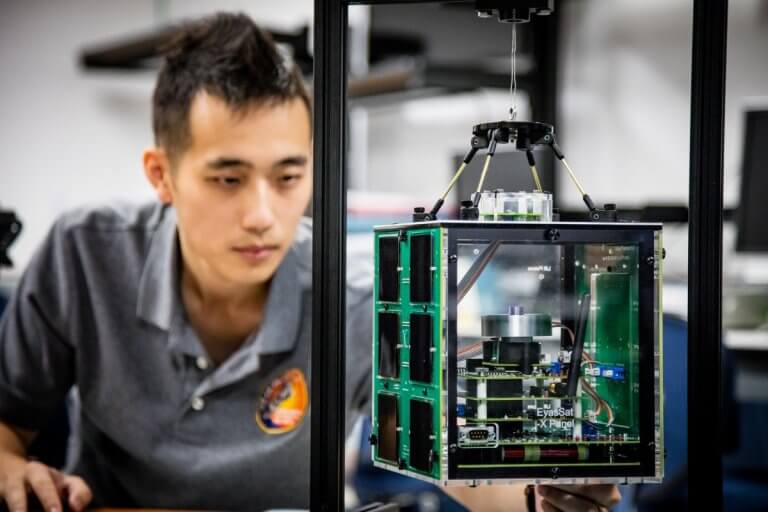
In today’s fast paced world, there isn’t always time to put your life on hold while you further your education and expand your skills. Some graduates might not be able to leave the workforce to deepen their expertise in engineering – so online graduate programs can offer this flexibility.
Online education is becoming increasingly popular among postgraduate students, but how do you study engineering online?
The Whiting School of Engineering at Johns Hopkins University – ranked 10th in the US by the US News Best Colleges Ranking, and is world renowned for its research and its part-time and full-time graduate programmes – has curated specialised graduate programmes that allow working engineers to continue progressing through their current endeavours while also gaining the flexible, specialized education needed to propel them further.
These programmes focus on practical skills and applications and use the latest advancements in online instruction.

Source: Johns Hopkins University
The Whiting School of Engineering currently offers over 21 Master’s programmes that can be completed part-time, with 19 of these offered online, granting autonomy over how you study. Classes are kept small – only 20 students or less – allowing for great interaction between students and faculty.
What distinguishes Johns Hopkins’ online graduate programmes from its competitors is their focus on experiential learning. Many of the university’s programmes offer online students hands on learning opportunities including collaborative group projects, mentored independent research projects, brief summer weekend lab residencies, and mailed at-home lab kits, allowing students to get the same quality of education as students learning on campus.
Some of the most innovative offerings are the university’s virtual laboratories used in its online Electrical and Computer Engineering Master’s programme. These facilities include technology developed by the university that allows students to interface with the equipment, so they can experiment and analyse real data during their studies.

Source: Johns Hopkins University
“We find this is much more beneficial than doing simulations, whereas students are actually experiencing some of the real-world complications that such devices tend to have,” says Dr. Brian Jennison, Chair of the part-time and online Electrical and Computer Engineering programmes.
This allows students to gain industry-relevant skills while studying at Whiting School of Engineering, allowing them to graduate with experience in collecting, analysing and implementing data in their investigations, and also understanding the issues that can arise during these practices.
One such virtual lab is the Communications Circuits Laboratory (CCL), which students use as part of a corresponding communications circuits online course.
When asked if these facilities are just as effective as face-to-face classes and laboratories, Dr. Jennison replied: “Yes. Online students are interacting with actual communications circuits and experiencing the “real-world” complexities and system imperfections that face-to-face students would encounter in a laboratory. The online students can change instrument settings to optimize a measurement and then examine the collected data for analysis and interpretation.”
Johns Hopkins’ offers over 310 online courses across its 21 part-time engineering programs. In most cases, students can also enrol in coursework outside of their programme as electives. Both these factors means that online students at Johns Hopkins’ receive a broad and diverse study experience that covers the core areas of engineering in incredible depth.
If you would like to find out more about online learning at Johns Hopkins University’s Whiting School of Engineering, you can explore their Master’s programmes, Graduate Certificates and Post-study Certificates here.
Liked this? Then you’ll love…
Advance online with the Whiting School of Engineering
Engineering your success: Schools that blend Engineering with enterprise







